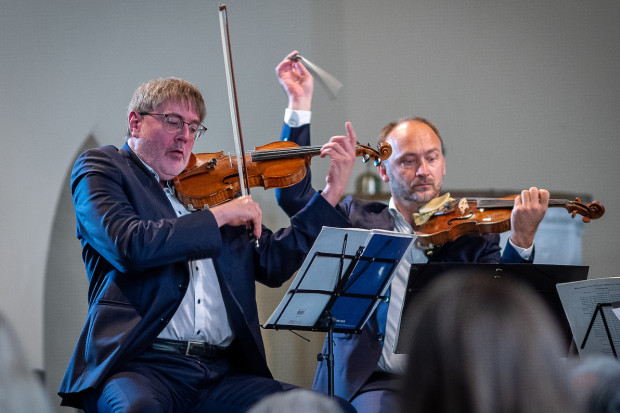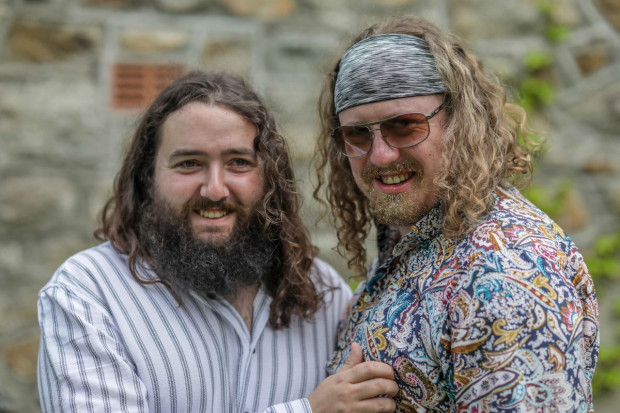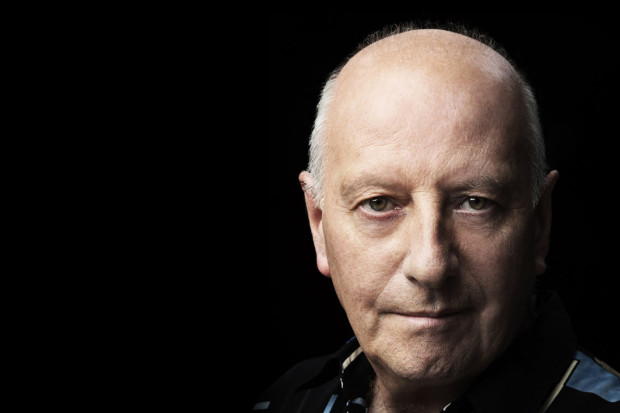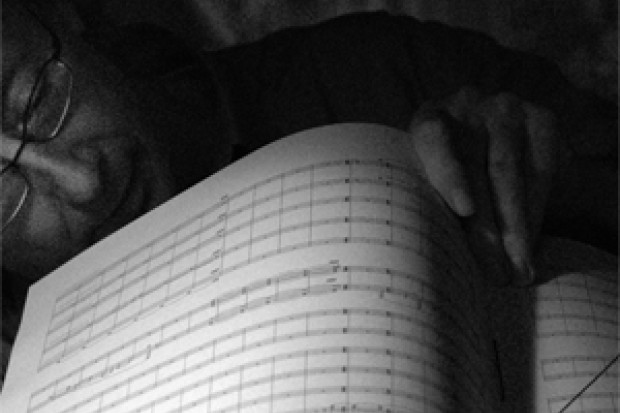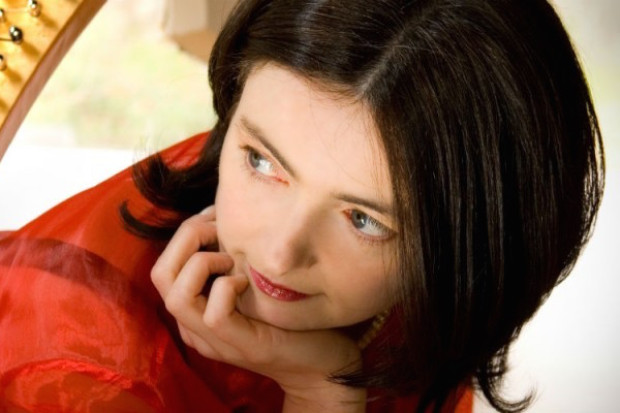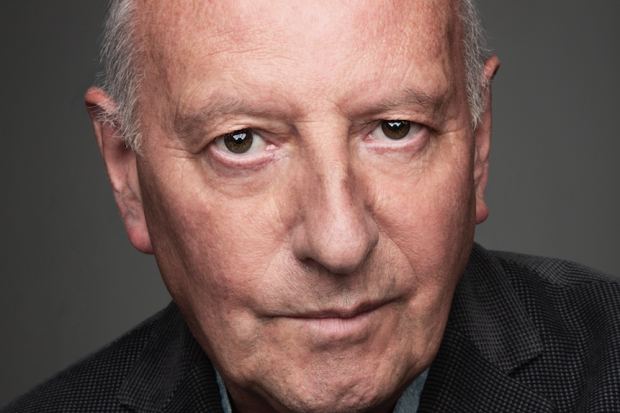Imagining the Festival of the Future: The RTÉ Living Music Festival 2005
We’ll begin at the end. After the final concert of this year’s RTÉ Living Music festival, there was the usual reception. Inevitably, this takes the form of a mini-festival of praise. There was praise for Kevin O’Connell, the festival Artistic Director, from Niall Doyle of RTÉ, and for RTÉ from Kevin O’Connell; there was praise for the organisers, the players, the audience, sponsors, the Helix… There had been little hints earlier that change was in the air, so it was not entirely a surprise that, at the end of Niall Doyle’s speech, a different note was struck.
RTÉ were going to take some time to consider the future form the festival would take. Soundings had already been taken and there would be some further consultation in the coming weeks with relevant parties. This could simply mean that a redesign is envisaged, but many listeners felt that something more serious was afoot and that we had seen the end of the festival as we have known it – and possibly the end of the festival full-stop.
Criticising institutions for their lack of imagination and commitment is something that comes naturally to us these days. Where this festival is concerned, it must be said, RTÉ cannot be accused of indifference or incompetence. On the contrary, each year they have put their full resources at the disposal of the festival and there has been no sense that Niall Doyle’s energetic wrapping-up speeches have been exercises in corporatespeak. It has been clear to all that there was a strong desire for the success of the festival. We remember too how warmly Raymond Deane, Artistic Director for the first two years, thanked all who had assisted and backed him in his efforts for the festival. Why then has the future of the festival been called into question?
Audiences and programming
The sad fact is that, looking at the audience for what should have been the crowd-pulling concert on closing night, one had to feel disappointment. Given that a significant number of seats were occupied by people involved in some way in the festival, by guests, by reviewers and so on, it was clear that the number of paying audience members was not on a scale to justify the effort that had gone into preparing for the event. The front and side seats were sparsely populated so that it was only the central section that presented a mass that corresponded to the full-scale orchestra deployed so impressively on the stage.
This is not the place to go into the question of whether contemporary music of this kind has lost its hold on the musical public. We have in fact seen a lot of activity in recent years. More composers are coming through than ever before. Several universities, North and South, are offering impressive courses and facilities to music students. And there is a public for the concerts offered by the Crash Ensemble, Mostly Modern, Concorde and others. We must look elsewhere for an explanation of the failure of the RTÉ Living Music Festival to take off as the grandstand Irish event in the new music field.
One factor that has done the festival no favours is that the Helix is not a venue regularly attended by those who might be interested in contemporary music. Event organisers know very well how slow a process it can be to build up an audience for a new venue. Sadly, though the Mahony Hall at the Helix is an absolutely outstanding space in which to experience full-scale orchestral music, the possible partnership between the venue and RTÉ was never realised. The Hall gives the audience not only excellent sound but a palpable sense of sound in space. The structure of the music seems to become almost visible in front of one, with the result that the audience feels intimately involved even as the orchestra blasts out something as dramatic as Henze’s Symphony No 7. How many of those present had been at the Helix during the previous year? How many of those who would have been half-interested in the music on offer decided on a wintry night to stay at home and listen to the radio rather than head for unfamiliar territory? There was also an element of bad luck: the featured composer – the second time this had happened – was unable to travel.
RTÉ would have been hoping that the third festival would build on the achievements of the previous two. These had focused on Berio and on music in France, while also including new Irish works and a number of works by composers unconnected with the main focus. Somehow, there was less of a sense of expectation about this year’s event. Ultimately, this is about focus. Hans Werner Henze’s face was on the posters and it was his music that would have to be the main draw. But how much Henze would there be and would the music chosen make its case strongly enough?
There was one choral piece – Orpheus behind the Wire – sung by the National Chamber Choir. A short, rather slight L’heure bleue, played by Ensemble Modern in a concert that also featured Quasi une Visione, a somewhat diffuse Frank Corcoran piece, and Wolfgang Rihm’s intense and impressive Jagden und Formen. A more substantial (though possibly over-extended) work, Kammermusik, was played and sung beautifully by the Birmingham Contemporary Music Group. Drei Dithyramben and Symphony No. 1, neither of which spoke strongly to this listener, were performed by the RTÉ Concert Orchestra, along with small-scale works by Knussen and Birtwistle, as well as an achieved work by Fergus Johnston, Binn an tSíorsholais. String Quartet No. 5 was played by the RTÉ Vanbrugh, who also played Rachel Holstead’s Roses for Icarus (a promising piece which, though involving sustained notes, flicks and groanings, went quietly about its business) and a pleasant early work by Britten (the ‘Phantasy’ Quartet, Op. 2, with Nicholas Daniel on oboe). Along with the Kammermusik, it was the Seventh Symphony that boldly proclaimed Henze’s stature as a composer in the way that a festival demands. The RTÉ National Symphony Orchestra also performed ballet music by Stravinsky and Matthias Pintscher’s en sourdine, with Viviane Hagner as soloist. John McLachlan found this too hushed and overlong but, along with most of the audience, I found myself compelled by the whispering intensity of the relationship between violin and orchestra.
As if to say that this was not quite a Henze festival, there was also a strong British element, with works by Holloway, Ades, Tippett, Knussen, Birtwistle, Goehr and Britten. In a sense, then, we were being offered two half-festivals in one, instead of a single confidently focused event. This must be seen as a failure of programming because it ignores audience psychology. If the intention is to draw an audience to work with which they are largely unfamiliar, it is important to give the impression that you believe that this is going to be an exciting set of concerts, that the audience will be taken on a voyage of discovery. This year, the image that the festival projected was a little blurred. Just in case you don’t find Henze fascinating enough, could we interest you in some of these other composers?
Some time ago the Crash Ensemble ran a festival that centred on the New York, Bang on a Can scene. As it happened, I wasn’t greatly enthused by a lot of the music but I did not think this was poor programming, nor wish that there had been a side-menu of Lithuanian maximalists. I learnt something about the music in question and about my own taste or lack of it. I would willingly go to another festival organised by the same group, even if it did not focus on music that I already love or admire. Last year, the Sligo festival had the courage to focus on the German-based British composer Rebecca Saunders. The major disappointment there was that so few Irish composers and players had the curiosity to travel. Had they done so, they would have been richly rewarded.
A different formula?
We do not know if there will be another RTÉ Living Music Festival on the scale that we have seen for the last three years, but it is unlikely that the same resources will be on offer the next time round. Perhaps we should take the British component in this year’s festival and imagine how something like this could become part of a slightly different festival. Apart from those young composers who have moved to Britain or a composer like Gerald Barry who has a base of support for his work in England, there has not been a great deal of musical traffic in this field between the two islands. There are interesting historical questions to be addressed here and there are a number of Irish composers who have bypassed Britain almost entirely, finding more stimulation in the new music scene elsewhere in Europe. There are probably many British composers who have neither set foot in Ireland nor had their work performed here.
There are, in Ireland, many articulate composers with no shortage of either curiosity or opinions (Raymond Deane, Kevin Volans, Roger Doyle, Siobhán Cleary, John McLachlan, Judith Ring, Fergus Johnston… ). Though in the Berio festival we had David Osmonde-Smith, someone who was so intimate a collaborator as to be able to speak what seemed the composer’s own thoughts, it might be possible to adopt a different formula. In our imaginary festival, for example, could we not gather some of these free spirits together with some of their British counterparts and set up discussions that would relate to the music that featured in the festival and to broader topics? The lecture form is not to be excluded where appropriate, but a composerly polyphony might be more attractive to the audience. Mixing honoured guests and local talent – be they composers or performing groups – might draw more people into the festival in ways that might prove stimulating to all concerned. A focus on a particular composer in the showcase concert would not be excluded either. Even with reduced funding – and this is no way to be construed as a wish that funding should be reduced – it should be possible to offer an attractive program of events and music.
In addition (and yes, that is the sound of a personal drum being banged), could not a dialogue between musics be a part of the event? There are in England, for example, outstanding improvising instrumentalists like Evan Parker or John Butcher who could be programmed with their classical/contemporary equivalents. Musicians like Chris Burns or Simon H. Fell have created subtle, structured part-improvised forms of music that would make fascinating listening if set alongside equivalent chamber music from the other tradition. The electro-acoustic field also offers many possibilities. Why not see what such a meeting would produce? There is already a relatively small but devoted audience for these forms of music in Ireland.
If this has been less of a report on the festival than a consideration of what the festival could be, it is in the hope that the RTÉ Living Music Festival’s pause for thought will prove to be a prelude to renewal.
Published on 1 March 2005
Barra Ó Séaghdha is a writer on cultural politics, literature and music.












